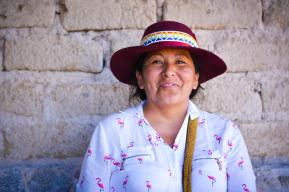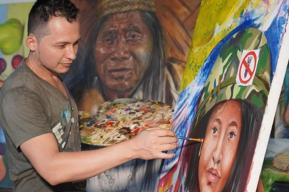
Culture and Education
Together, they shape who we are and who we will become.
UNESCO works to engage its interdisciplinary mandate in culture and education as part of a renewed vision of education grounded in the respect for cultural diversity and human rights. In an increasingly diverse, interdependent and volatile world, what counts as high quality education has evolved. Having the breadth of skills to understand, adapt and thrive in the face of changing social, economic and technological demands is paramount. Creativity, innovation, critical-thinking, resilience and empathy – this skillset is vital to harness the promises and mitigate challenges today and in the future. Working at the nexus of culture and education, UNESCO mobilizes its expertise and resources to support its Member States and a broad range of stakeholders in policy development and cross-cutting actions. From heritage to the cultural and creative industries, UNESCO strives to integrate culture in a wide range of education contexts and approaches to better equip learners of all ages with the knowledge, skills and attitudes to fulfill their potential, face future challenges, and forge more equitable and peaceful futures for all.


Latest news
At a time when challenges related to climate, peace and the future of our societies are converging, our need for the power of culture and education together is stronger than ever.

World Alliance for Arts Education Survey on Culture and Arts Education - Participate in the survey!
The 20-minute online survey is aimed at teachers and educators around the world to understand firsthand their challenges and needs related to culture and arts education. Led by the World Alliance for Arts Education in consultation with UNESCO, the survey results will support the development of the UNESCO global Framework on Culture and Arts Education.

don't have the chance to learn in their mother tongue

can provide remote learning in Technical and Vocational Education and Training

in culture-related fields are women (Erostat)





